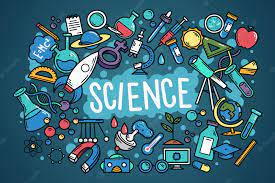Introduction:
Science is an intriguing discipline that aids in our understanding of the outside world. We’ve put together a list of 100 science quiz questions with answers to test your understanding of science. These quiz questions will test your scientific knowledge, regardless of whether you’re a science fanatic or just searching for an enjoyable method to learn. Let’s get going!
Table of Contents
Why Are Science Quizzes Important in 2023?
The foundation of our quickly evolving world is science. Global issues that we must deal with in 2023 include pandemics, climate change, and technology breakthroughs. In order to solve these problems, science is vital, and people must have a fundamental comprehension of scientific ideas. Here’s why this year’s science quizzes are crucial:
1. Promoting Scientific Literacy
2. Encouraging Critical Thinking
3. Staying Updated
4. Fun Learning
Here are 100 Science Quiz Questions with Answers:
Physics:

Let’s examine the principles that control matter’s behavior, motion, and energy. We explore ideas that impact our comprehension of the universe as we go into the field of physics in this portion of “100 science quiz questions with answers .” Prepare to explore the wonders of physics and put your knowledge to the test!
1. What is the fundamental unit of electric charge?
Answer: Coulomb
2. Who is known for his theory of general relativity?
Answer: Albert Einstein

3. What is the SI unit of force?
Answer: Newton
4. Which subatomic particle has a positive charge?
Answer: Proton
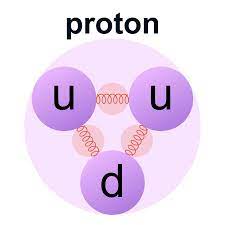
5. What is the SI unit of electric current?
Answer: Ampere
6. Who discovered the law of gravitation?
Answer: Isaac Newton

7. What is the speed of light in a vacuum?
Answer: Approximately 299,792,458 meters per second
8. What is the process by which a liquid turns into a gas at its boiling point?
Answer: Vaporization
9. Which gas is most abundant in Earth’s atmosphere?
Answer: Nitrogen

10. What is the SI unit of resistance in an electrical circuit?
Answer: Ohm
11. What is the basic unit of matter?
Answer: Atom

12. Who is credited with the discovery of radioactivity?
Answer: Marie Curie

13. What is the law that states that the total energy in a closed system remains constant?
Answer: The Law of Conservation of Energy
14. What is the SI unit of power?
Answer: Watt
15. What is the force that opposes the motion of objects through a fluid (e.g., air or water)?
Answer: Drag force
16. What is the process by which heat is transferred through the direct contact of particles?
Answer: Conduction
17. What is the unit of measurement for frequency?
Answer: Hertz
18. What type of electromagnetic radiation has the shortest wavelength?
Answer: Gamma rays

19. Who is known for his famous equation, E=mc²?
Answer: Albert Einstein
20. What is the branch of physics that deals with the behavior of very small particles, such as atoms and subatomic particles?
Answer: Quantum physics

Chemistry:

Science’s field of chemistry aids in our understanding of the characteristics, makeup, and behavior of substances. It’s an intriguing field that lets us discover the mysteries of the cosmos, from the elements in our daily lives to the periodic table to compounds and reactions. These are some entertaining chemical trivia questions for children:
1. What is the chemical symbol for gold?
Answer: Au
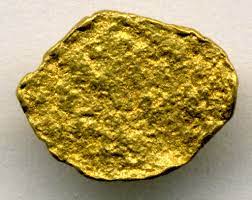
2. What is the most abundant gas in Earth’s atmosphere?
Answer: Nitrogen (N2)
3. Which element is the primary component of natural gas?
Answer: Methane (CH4)
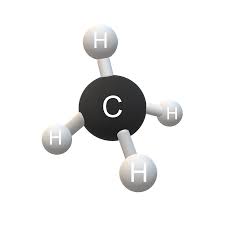
4. What is the chemical formula for water?
Answer: H2O
5. What is the atomic number of carbon?
Answer: 6
6. What is the chemical symbol for iron?
Answer: Fe
7. What is the process by which plants convert light energy into chemical energy?
Answer: Photosynthesis

8. Which noble gas is often used in balloons to make them float?
Answer: Helium (He)
9. What is the chemical formula for table salt?
Answer: NaCl
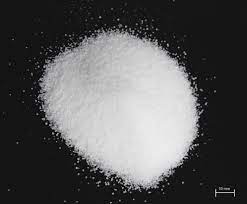
10. What is the smallest unit of an element that retains its chemical properties?
Answer: Atom
11. Which gas do plants absorb from the atmosphere during photosynthesis?
Answer: Carbon dioxide (CO2)
12. What is the pH of a neutral solution?
Answer: 7
13. What is the most abundant element in the Earth’s crust?
Answer: Oxygen (O)
14. What is the chemical name for baking soda?
Answer: Sodium bicarbonate

15. What is the process of a substance changing from a gas to a liquid?
Answer: Condensation
16. What is the chemical formula for hydrogen peroxide?
Answer: H2O2

17. What is the lightest and most abundant element in the universe?
Answer: Hydrogen (H)
18. What is the chemical formula for methane hydrate, a substance found in deep-sea sediments?
Answer: CH4·6H2O
19. What is the chemical symbol for lead?
Answer: Pb
20. What is the study of the relationship between matter and energy?
Answer: Thermodynamics

Biology:

Biology enables us to comprehend the workings, evolutionary history, and environmental interactions of living organisms. It includes all living things on Earth, from the smallest cells to the intricate ecosystems that support life. Together, let’s delve into some fascinating biological facts and trivia and discover the mysteries of life!
1. What is the powerhouse of the cell?
Answer: Mitochondria

2. What is the process by which plants make their own food using sunlight?
Answer: Photosynthesis
3. What is the process called when a caterpillar transforms into a butterfly?
Answer: Metamorphosis

4. What is the chemical formula for water?
Answer: H2O
5. What is the largest organ in the human body?
Answer: Skin
6. What is the basic unit of heredity in living organisms?
Answer: Gene
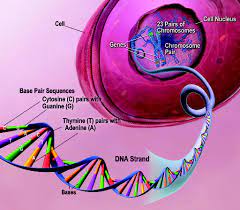
7. Which gas do humans inhale for respiration and release during exhalation?
Answer: Oxygen (O2)
8. What is the name for the tiny filters in our kidneys that help remove waste from our blood?
Answer: Nephrons.

9. What is the name of the process by which a cell divides into two identical daughter cells?
Answer: Mitosis
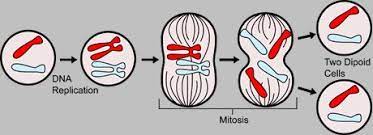
10. What is the study of fossils and ancient life forms called?
Answer: Paleontology
11. Which organ in the human body is responsible for pumping blood?
Answer: The heart.
Answer: Carbon dioxide (CO2)
12. What is the largest mammal on Earth?
Answer: Blue whale
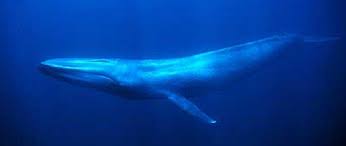
13. What is the scientific name for the human brain?
Answer: Cerebrum
14. What is the heaviest organ in the human body by weight?
Answer: The liver
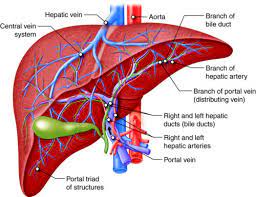
15. What is the green pigment in plant cells that is essential for photosynthesis?
Answer: Chlorophyll
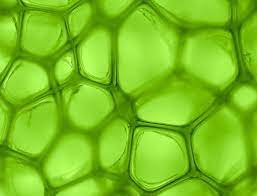
16. Which gas do plants release during the night as a part of respiration?
Answer: Carbon dioxide (CO2)
17. What is the largest mammal on Earth?
Answer: The blue whale.
18. What is the process of blood clotting called?
Answer: Coagulation
19. What is the body’s main organ for removing waste and excess substances from the blood?
Answer: Kidneys

20. What is the study of the classification and naming of organisms known as?
Answer: Taxonomy
Astronomy:
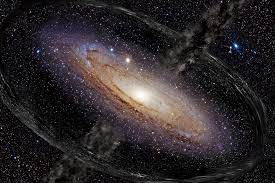
Take a trip through the planets, stars, and galaxies as we reveal fascinating information about the cosmos. Prepare to be amazed by heavenly occurrences, explore far-off planets, and pique your interest in the secrets of space travel. Together, let’s explore the field of astronomy and discover the universe’s mysteries.
1. Question: What is the closest star to Earth?
Answer: The Sun.

2. Question: Which planet is known as the “Red Planet”?
Answer: Mars.

3. Question: What is the largest planet in our solar system?
Answer: Jupiter.

4. Question: What is the name of the galaxy that contains our solar system?
Answer: The Milky Way.

5. Question: What is the process by which a star converts hydrogen into helium through nuclear fusion?
Answer: Stellar nucleosynthesis.
6. Question: Who is known as the father of modern observational astronomy?
Answer: Galileo Galilei.

7. Question: What is the phenomenon where light from a celestial object is bent due to gravity, creating a visual distortion?
Answer: Gravitational lensing.
8. Question: What is the name of the event when the moon passes directly between the Earth and the Sun, casting a shadow on the Earth?
Answer: Solar eclipse.

9. Question: Which moon of Jupiter is known for its active geysers and subsurface ocean?
Answer: Enceladus.
10. Question: What is the name of the brightest star in the night sky?
Answer: Sirius.

11. Question: Which space telescope was launched in 1990 and has provided stunning images of distant galaxies and nebulae?
Answer: Hubble Space Telescope.
12. Question: What is the study of the origin, evolution, distribution, and future of the universe called?
Answer: Cosmology.
13. Question: What is the term for a dying star that explodes and briefly outshines an entire galaxy?
Answer: Supernova.

14. What is the name of the closest star to Earth (other than the Sun)?
Answer: Proxima Centauri.

15. Question: Which planet has the Great Red Spot, a massive storm system that has been raging for centuries?
Answer: Jupiter.
16. Question: What is the name of the first artificial satellite launched into space by humans in 1957?
Answer: Sputnik 1.

17. Question: What is the name of the brightest star in the constellation Orion?
Answer: Betelgeuse.
18. Question: Which mission successfully landed the first humans on the Moon in 1969?
Answer: Apollo 11.

19. Question: What is the name of the process by which a star collapses under gravity at the end of its life cycle?
Answer: Supernova.
20. Question: What is the concept that the universe is constantly expanding and originated from a singularity known as?
Answer: The Big Bang theory.
General Science:

The basic study of the natural world with the goal of comprehending the rules and laws governing the cosmos is known as general science. It includes many different fields, such as earth sciences, biology, chemistry, and physics. All scientific knowledge is based on general science, which offers insights into the workings of matter, energy, and life. As a field that stimulates curiosity, critical thinking, and problem-solving abilities, it is vital to everyday life as well as scientific research.
1. What is the chemical symbol for water?
Answer: H2O
2. Which planet is closest to the Sun?
Answer: Mercury

3. What is the largest organ in the human body?
Answer: Skin
4. What is the process by which plants convert sunlight into energy?
Answer: Photosynthesis
5. What is the force that attracts objects with mass towards each other?
Answer: Gravity

6. What is the name of the gas that makes up about 78% of the Earth’s atmosphere?
Answer: Nitrogen
7. What is the name of the disease that is caused by a lack of vitamin C?
Answer: Scurvy
8. What is the name of the process by which water from the oceans evaporates and then falls back to Earth as rain or snow?
Answer: Water cycle
9. What is the name of the smallest unit of matter that cannot be broken down into any smaller parts?
Answer: Atom
10. What is the name of the organ that pumps blood around the body?
Answer: Heart

11. What is the name of the process by which animals break down food into energy?
Answer: Digestion
12. What is the name of the gas that is used to fill balloons?
Answer: Helium
13. What is the name of the force that resists the motion of an object through a fluid?
Answer: Drag
14. What is the name of the process by which light is bent when it passes through a lens?
Answer: Refraction

15. What is the name of the process by which electricity is generated from the movement of a magnet?
Answer: Electromagnetic induction
16. What is the name of the gas that is produced when plants respire?
Answer: Carbon dioxide
17. What is the name of the process by which the Earth’s atmosphere protects us from harmful ultraviolet radiation from the Sun?
Answer: Ozone layer

18. What is the name of the force that attracts oppositely charged objects and repels similarly charged objects?
Answer: Electromagnetism
19. What is the name of the process by which cells reproduce?
Answer: Cell division

20. What is the name of the theory that explains the origin and evolution of life on Earth?
Answer: Evolution

Conclusion:
Numerous subjects have been addressed, such as chemistry, biology, physics, space, plants, and animals. We’ve traveled through a fascinating collection of science trivia questions covering everything from the solar system to the boiling point of water, from the invention of penicillin to the largest land animal.
I hope you had a great time and learned a lot from this lengthy list of science trivia questions! Savor the process of learning, broaden your perspective, and accept the marvels of science in all of its enthralling splendor.
